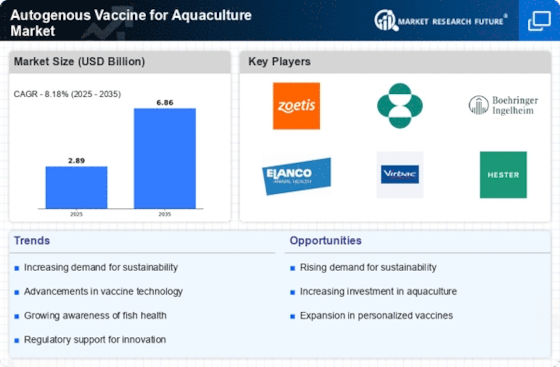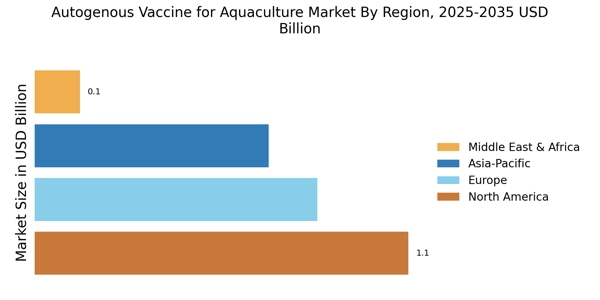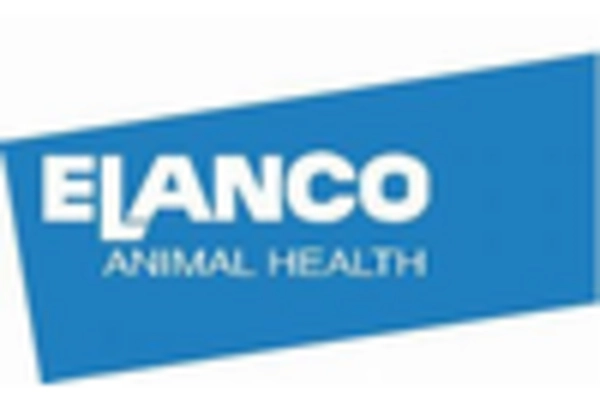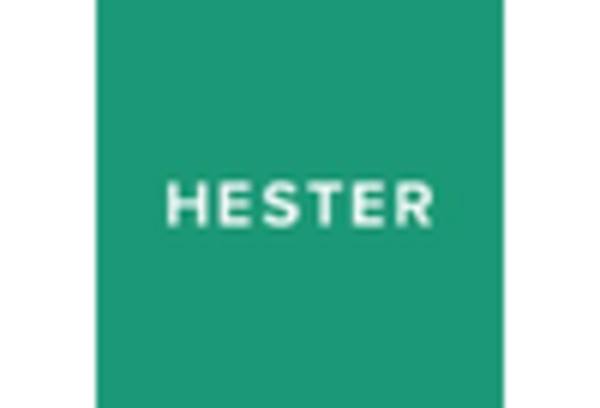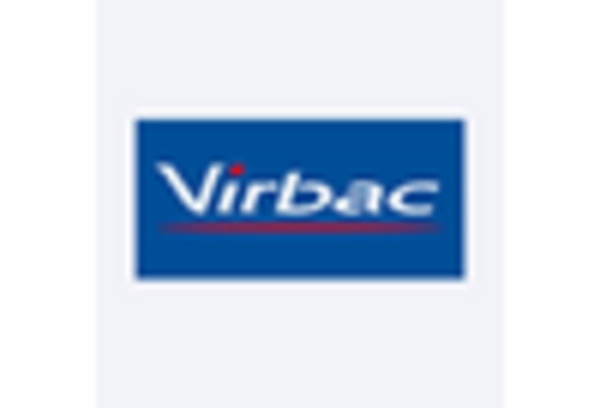Increased Incidence of Aquatic Diseases
The rising incidence of aquatic diseases poses a significant challenge to the aquaculture sector, thereby driving the Autogenous Vaccine for Aquaculture Market. Pathogens such as bacteria, viruses, and parasites have been increasingly reported, leading to substantial economic losses for fish farmers. The World Organisation for Animal Health has noted that disease outbreaks can reduce fish production by up to 30%. In response, aquaculture producers are turning to autogenous vaccines, which are specifically designed to combat local pathogens. This trend is expected to bolster the market, as producers seek effective solutions to safeguard their stocks and ensure sustainable production.
Growing Awareness of Fish Welfare and Quality
The growing awareness of fish welfare and product quality is significantly impacting the Autogenous Vaccine for Aquaculture Market. Consumers are increasingly demanding high-quality seafood products, which has prompted aquaculture producers to prioritize fish health and welfare. Autogenous vaccines play a crucial role in ensuring the health of fish populations, thereby enhancing the overall quality of seafood. This trend is reflected in market dynamics, where the demand for high-quality aquaculture products is expected to rise, potentially increasing the market for autogenous vaccines. As producers strive to meet consumer expectations, the adoption of these vaccines is likely to accelerate.
Advancements in Vaccine Development Technologies
Technological advancements in vaccine development are significantly influencing the Autogenous Vaccine for Aquaculture Market. Innovations such as recombinant DNA technology and improved adjuvants have enhanced the efficacy and safety profiles of autogenous vaccines. These advancements allow for the rapid development of vaccines tailored to specific pathogens, which is crucial in a dynamic aquaculture environment. The market is witnessing a shift towards more sophisticated vaccine formulations, which are anticipated to capture a larger share of the aquaculture vaccine market, projected to reach USD 1.5 billion by 2027. This evolution in vaccine technology is likely to drive further investment and research in the sector.
Rising Demand for Sustainable Aquaculture Practices
The increasing emphasis on sustainable aquaculture practices is a pivotal driver for the Autogenous Vaccine for Aquaculture Market. As consumers become more environmentally conscious, aquaculture producers are compelled to adopt practices that minimize ecological impact. Autogenous vaccines, tailored to specific pathogens affecting local fish populations, offer a sustainable alternative to conventional vaccines. This shift is reflected in the market, where the demand for such vaccines is projected to grow at a compound annual growth rate of approximately 8% over the next five years. By utilizing autogenous vaccines, aquaculture operations can enhance fish health while reducing reliance on antibiotics, aligning with global sustainability goals.
Regulatory Support for Aquaculture Health Initiatives
Regulatory frameworks supporting aquaculture health initiatives are emerging as a key driver for the Autogenous Vaccine for Aquaculture Market. Governments and regulatory bodies are increasingly recognizing the importance of disease management in aquaculture, leading to the establishment of guidelines that promote the use of autogenous vaccines. These regulations not only facilitate the approval process for new vaccines but also encourage aquaculture producers to adopt preventive measures. As a result, the market is expected to expand, with an estimated growth rate of 7% annually over the next few years, as producers align with regulatory expectations and enhance fish health.


